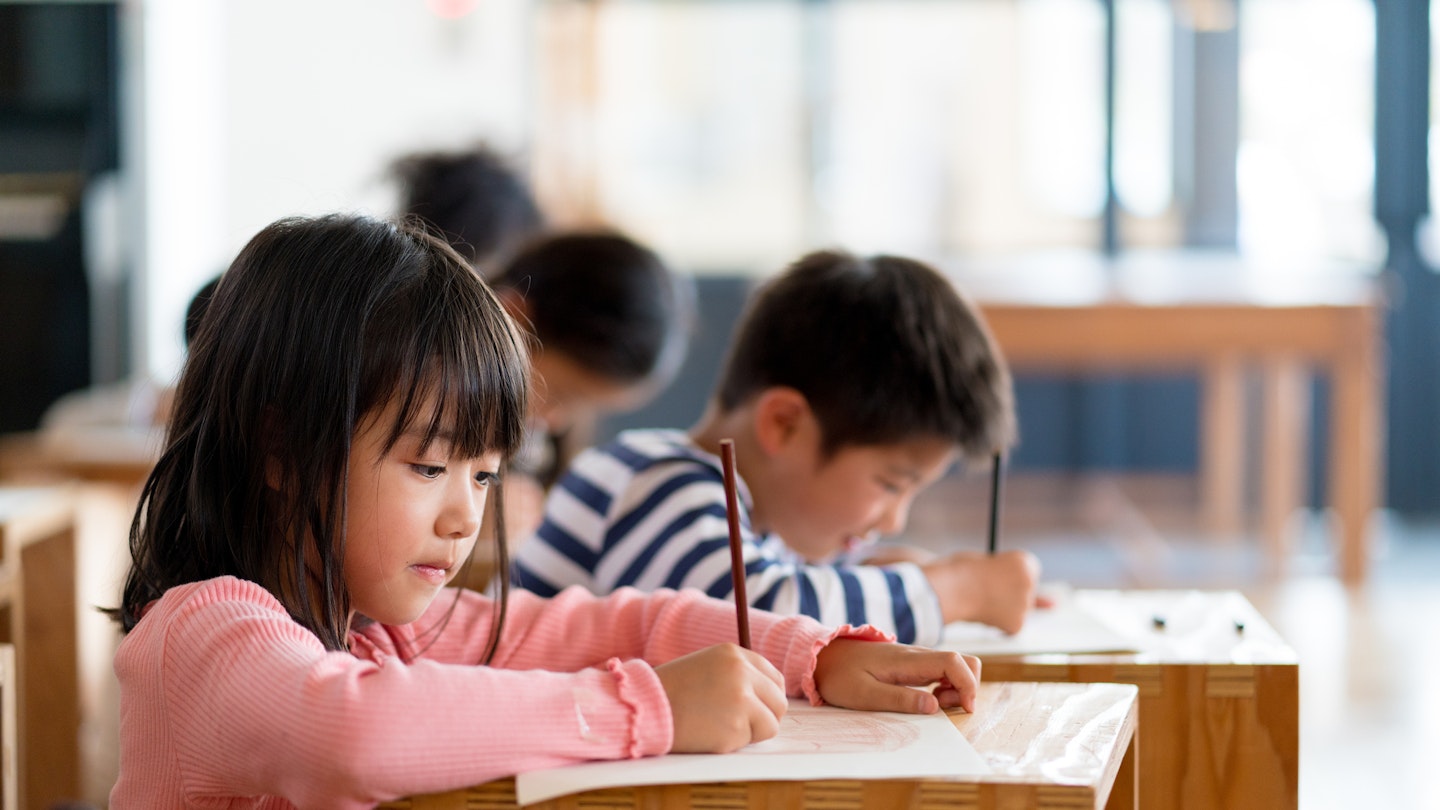By the time we made it through the Ghibli museum in Tokyo to the legendary life-size Cat Bus, my children were chomping at the bit. They, like me, were weaned on My Neighbour Totoro, and their excitement was totally understandable - I was pretty devastated I was too big to sit in it and pretend to be Mei. It was perfect - enormous, grinning, soft and inviting. And surrounded by kneeling white-gloved guardians, ready to intervene, smiling but firm, should any of the rules about playing on it be broken. There was a queue of fifteen or so two- to five-year-olds kneeling patiently next to the entrance, waiting for their turn to walk calmly around the cat bus, memorising the large board of rules, illustrated with crosses through all the things they weren’t permitted to do.
We just about convinced our four- and two- year old to wait, inevitably ruining the tranquility by hopping, dancing and leaving their places regularly, and naturally, as soon as their turn came, the first thing the big one did was to try to climb on the cat bus’s head (against the rules) and the little one picked up a furry, ball-shaped soot-gremlin and chucked it joyfully in the air (also against the rules). They were stopped, smiled at with genuine bemusement that they could be so heinous (particularly when they looked slightly Japanese - we couldn’t even play the clueless gaijin card), I considered pretending they weren’t related to me, etc. The usual story.
It wasn’t a surprising turn of events. On the underground, small children sat quietly with their legs crossed while mine ran up and down the carriage, at silent soft plays other children pored over picture books while mine threw themselves off foam slides and yelled when they landed on their heads. Not only that, but while I find it unremarkable that my son has to have a twenty-minute-breakdown before conceding to do his bi-weekly seven minutes of piano practice, in Japan it’s completely normal to start piano at three, and for kids to practise every day. The whole time we lived there, I was torn between cringing embarrassment at my incorrigibly noisy offspring and defiance that they should raise eyebrows when all they were doing was behaving like children. It would be easier if I could just conclude that childhood in Japan is joyless, but that isn’t the case at all - I grew up in Japan and was ecstatically happy for a decade.

To clarify, I have no idea how these awesomely polite mini-Mozarts are achieved (obviously, because if did, my children would be playing the Royal Albert Hall while writing thank-you cards). It’s easy to observe that parenting in Japan is spectacularly labour-intensive, and falls almost exclusively on the mother. The pressure not to return to work is considerable - and it’s hard to know how another job would be possible, when once your baby is born, you’re expected not to leave the house at all for at least a month (traditionally it was 100 days, and my mother says she was scolded by her mother for even trying to get out of bed), and until the child is at least three, mother and child shouldn’t be parted. At all. Generally speaking, kids sleep with their parents (between them, specifically) well into childhood, and families usually remain close, with generations under one roof. Perhaps if you’re surrounded by people towing the party line for every moment of your life, it’s pretty clear that you’re part of a group first and foremost, and social consideration is passed on by osmosis, or in the mother’s milk?
Sometimes I like to sit around beating myself up that I just didn’t work at it hard enough. Take food, for example. Japanese kids are amazing eaters, happily munching vegetables, fermented beans, kelp. Probably my kids would have conceded to eat broccoli too, if they were under the impression all broccoli has a smiley face (made out of intricately snipped bits of ham) and exquisitely topiaried hair-styles. But guess what - our vegetables didn’t look like that - so really, maybe I should suck up that I didn’t have cordon bleu toddlers, if I wasn’t prepared to put in the requisite effort.
In the end, it’s most relaxing to conclude it’s a self-fulfilling prophecy - Japan is a society of polite, hard-working foodies. If kids learn by observation, I guess it makes sense that they’re polite, hard-working, good eaters too. The thing I like best about this conclusion is that living, as we do now, in London, a society whose defining characteristic is that everyone pretty much dances to their own tune, and being brought up by a mother who is neither meek or particularly well-behaved, there was never any chance my kids’ USPs were going to be silence and beautiful manners. So I might as well let myself off the hook completely, buy some ear plugs and put off re-introducing the kids to my Japanese relatives until they’re adults.
FAULT LINES by Emily Itami was published by Phoenix on 27 May 2021.
